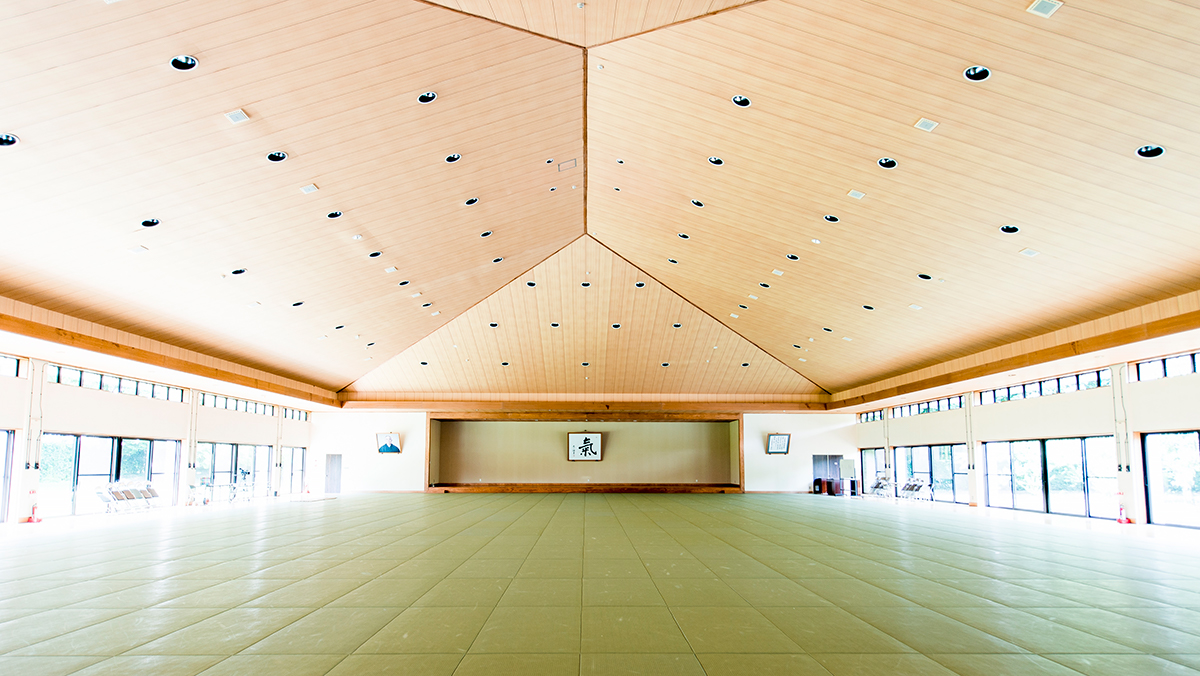I conducted a Ki seminar in Tochigi today. This month’s theme was "Ki and business". My teaching especially focused on communication in the business.
I introduced a company that applied Ki principles to their office work. I taught the Ki principles to participants of the Ki seminar. The participants experienced the Ki principles. I taught how to apply Ki in their daily lives.
Morning class
1. Mind moves body.
Mind and body are originally one. It is important to use your mind positively and use both mind and body. The state of oneness of mind and body is called "Shin-shin ichinyo" in Japanese. If we extend Ki to each other, our Ki exchanges naturally.
2. Exchange of Ki
I introduced a company. The workers greet coworkers with Ki in the office. By greeting with Ki, they avoid mistakes in the middle of work.
The most important practice to exchange Ki is to greet each other with Ki. This "greeting" means you greet people positively. If someone greets you and you greet them in return, your greeting is not greeting but a reply in this case. By sending Ki through greetings, you will know other’s state of mind and body.
3. Change yourself first before expecting others to change
I introduced a manager who is applying Ki principles at his office. He does not wait to have reports from workers but goes to the scene and listens directly to the worker. In this way, the manager was able to improve the communication between himselfe and the workers.
4. Show through by actions, not throughe words.
A manager wanted to change unpunctual workers. He did not give workers words of warning about it, but he came to office first and changed the unpunctual workers.
It is impossible to teach others the right way by using words. If you actually do the correct thing, then others will understand the correct thing correctly. Especially, when the problem is caused by your own behavior in the past it will not be solved by words. Mind and body are one. Use of your mind means you use body. This means that "using mind" means do not think, but act.
5. To see the personユs present behavior.
If you cling to the others’ past impression, you will not be able to see others’ present state. It is important to see the others’ action now not cling to what the others said in the past.
6. Do not imagine anothers’ place but put yourself in others place.
I introduced an example of communication between workers. When they took the same actions as others, rather than just imagineing them, the workers understood each other more.
"Imagine another’s place" means to see the others place from own point of view. "Put yourself in another’s placeモ means to act as if you are in the others place. It is important to understand the differences.
7. sharing concept of values
There is a company in which workers define the technical words to share the concept of values and prevent from misunderstandings between boss and workers and between departments.
By sharing the concept of values, each of the workers are be able to use their minds clearly. Take the words "report" or "service", sometimes those words’ definition is different for each person. If we use the same word as different meaning, there will be misunderstanding. It is important to check the definition and share the concept of values.
8. Ki study is to practice and validate
Ki is invisible. Therefore, it is essential to practice and validate. Sometimes, knowledge is easy to forget. However, your realization through your own experiences cannot be taken and these are your belongings.
In the afternoon
To solve stiff shoulders and backache, I taught correct posture. In addition, through neck movement of oneness rhythm exercise, we checked natural position of the neck and head.
I teach Ki principles at Tochigi Ki seminar every month with a different theme. This is a workshop. The participants are able to experience Ki and deepen their realization of Ki.
Next, we have Ki seminar in Tochigi on August 21 (Sunday). The theme is "Ki and calligraphy, Ki and tea ceremony".
I will teach you how to apply Ki in calligraphy and tea ceremony. I will invite calligraphy teacher who is Mr. Tadao Ishikawa. He teaches Ki and calligraphy at Ki-Aikido school.
I am looking forward to seeing you next month. I will be able to accept a limited number of participants this time. Therefore, I recommend you to apply as soon as possible.


